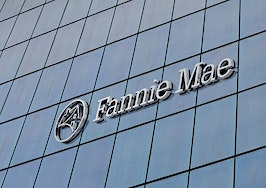Online real estate behemoth Zillow continued a multi-quarter growth streak Tuesday, revealing that in the first three months of 2021 it raked in $52 million in net income — the highest number ever for the company.
The net income numbers make the first quarter of the year Zillow’s most profitable ever, beating out the final quarter of last year which had previously been the company’s most profitable. In total, Zillow also brought in $1.2 billion in revenue. That beat both the company’s internal projections from last quarter as well as analyst forecasts, which had predicted revenue of $1.1 billion.

Rich Barton
In a letter to investors, CEO Rich Barton celebrated the results, saying they “exceeded expectations and showed our momentum toward delivering a seamless, end-to-end real estate transaction.”
“Across the country, millennials are moving up, baby boomers are downsizing, and in between, people of all generations are rethinking their lives in a cultural phenomenon we have termed the Great Reshuffling,” Barton continued.
Zillow’s stock was trading at just over $124 per share Tuesday leading into the earnings report. That was down for both the day and the month, and represents a significant decline from the firm’s high point in mid February when shares were trading at more than $200.
Following the release of Tuesday’s report, Zillow’s stock price spiked briefly to more than $128 per share in after hours trading before later bouncing around in the mid $120 range. As of Tuesday evening, the company’s market cap was roughly $30 billion.

Credit: Google
Despite the soft stock prices in recent weeks, Zillow’s earnings report Tuesday also included good news for the company’s online properties. In total, Zillow’s websites and mobile apps had an average of 221 million monthly unique users, up 15 percent year-over-year. Those numbers also represent notable gains over the fourth quarter of last year, when Zillow saw 201 million average unique monthly users.
And in total, the company saw 2.5 billion visits to its sites during the first quarter of 2021, up 19 percent compared to one year ago.
Those traffic numbers indicate that Zillow continues to dominate during the pandemic, both as a way to find houses as well as a recreational pastime for Americans who want to fantasize about moving or just escape from the grim news of the day.
And indeed in a statement, the company said that “the increase in pop culture recognition is driving people to Zillow to dream, shop, and move.” The comment is possibly a reference at least in part to a parody ad Saturday Night Live produced about the company.
Zillow’s Internet, Media and Technology (IMT) segment — which also includes the Premier Agent program — ultimately saw revenue grow 35 percent, to $446 million year-over-year. The segment’s profit before income taxes was $144 million. The company added in its report that Premier Agent specifically saw revenue grow 38 percent year-over-year during the quarter to $334 million.
In a call with investors, Barton said the IMT numbers were “really, really commendable.”
Meanwhile, the company’s Homes segment — which includes iBuying program Zillow offers — saw a net loss of $58 million.
The report further reveals that through Zillow Offers, the company sold 1,965 homes in the first quarter of the year. That generated nearly $701 million in revenue, though the company spent more than $610 million on home acquisition costs. It also spent $20.8 million on renovations, about $4.6 million on holding costs and nearly $27 million on selling costs.
In total, the program’s operating costs were nearly $662.5 million.
Zillow’s spent an average of $310,531 per property on the homes it bought, and sold them for an average of $356,730. It spent an average of $10,569 per house on renovations.
Asked about Zillow Offers during Tuesday’s earnings call, Barton said “it turns out that speed, certainty and convenience are attractive to sellers no matter what kind of market we’re in.” He also said the company plans to hire a net of 2,000 people in 2021, and many of those new hires will work with Zillow Offers.
Ultimately, Barton added that the company is “leaning in” to the program, but believes it has more potential than it’s currently tapping.
“We know this can be a giant business,” Barton added. He also later said that the company is studying data coming in from Zillow Offers and would like to “get the buy box as broad as we can in as many markets as we can.”
The company’s mortgage segment experienced a net loss of $2 million, according to the earnings report.
Zillow has been a consistent earnings winner in recent quarters. In February, for example, the firm revealed that in the final quarter of 2020 it brought in a net income of $46 million. At the time, that was the best it had ever done. It also represented the first time since Zillow went public that it had back-to-back profitable quarters.
Barton was ultimately optimistic about the housing market generally while speaking with investors Tuesday. Among other things, he said homebuying “never really slowed down” in recent months, and he argued that what he has called “the great reshuffling” — or a general migration pattern of remote workers moving to cheaper locations — is a permanent trend.
The pandemic, in Barton’s view, has consequently “caused people to rethink where they live.”
Update: This post was updated after publication with additional information from Zillow’s earnings report and the company’s call with investors.













